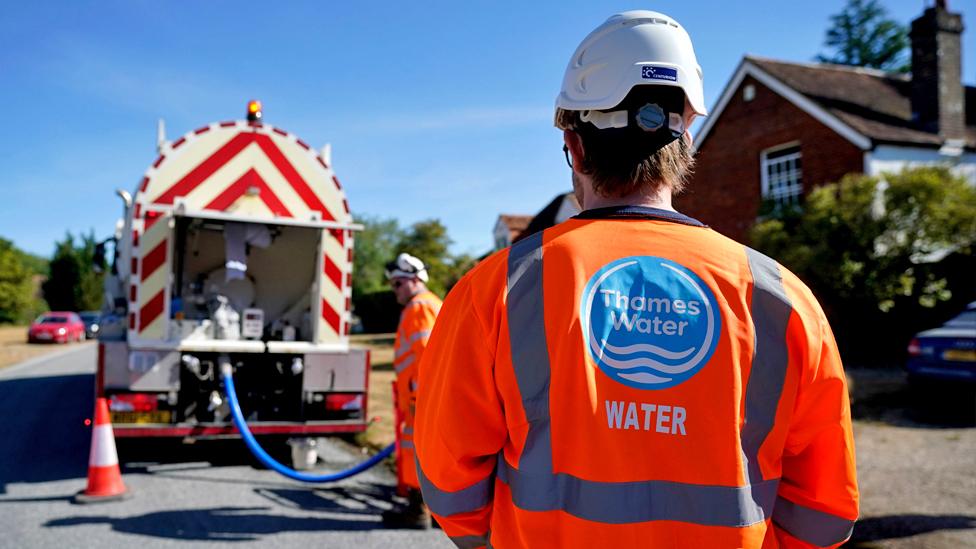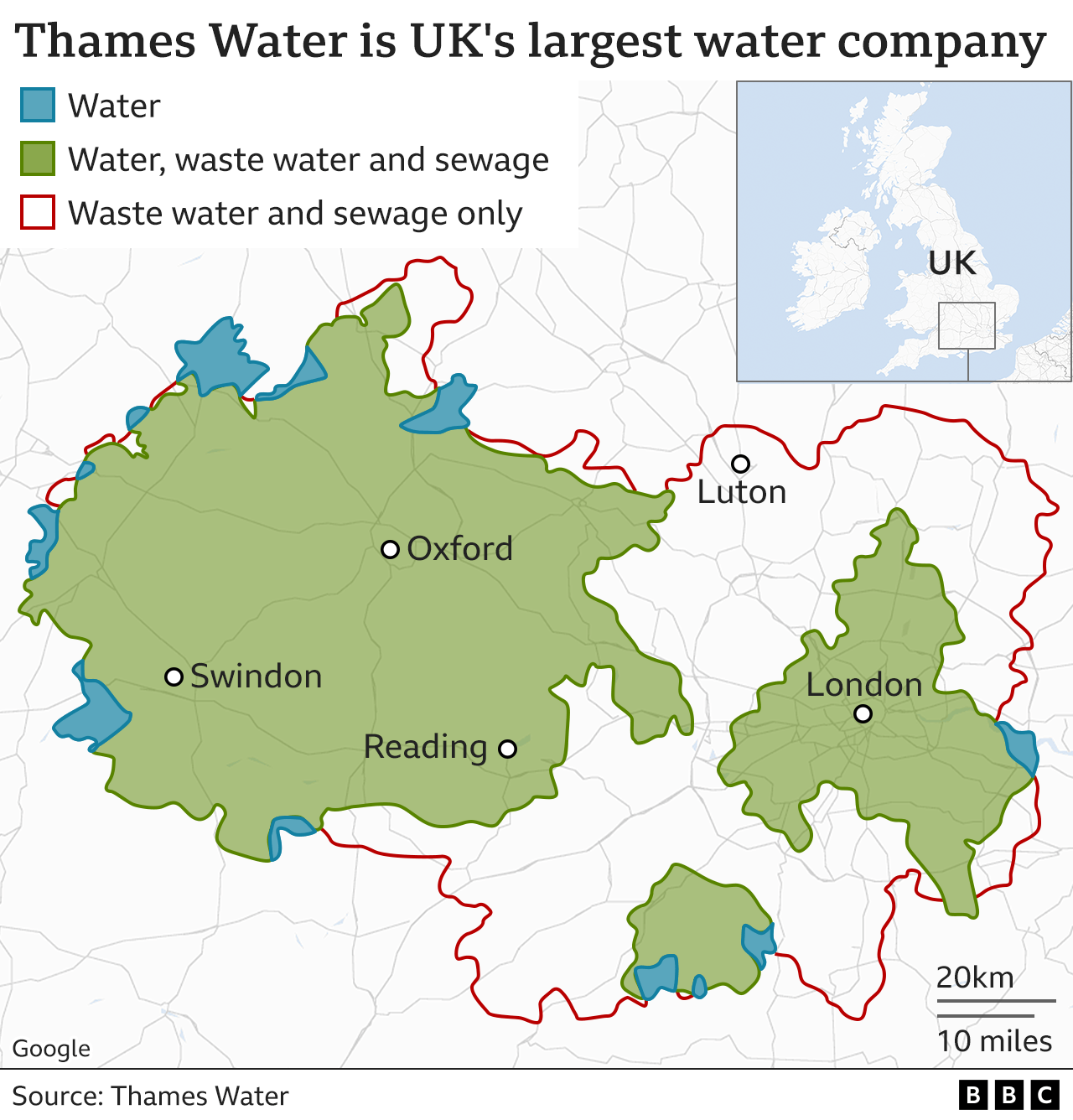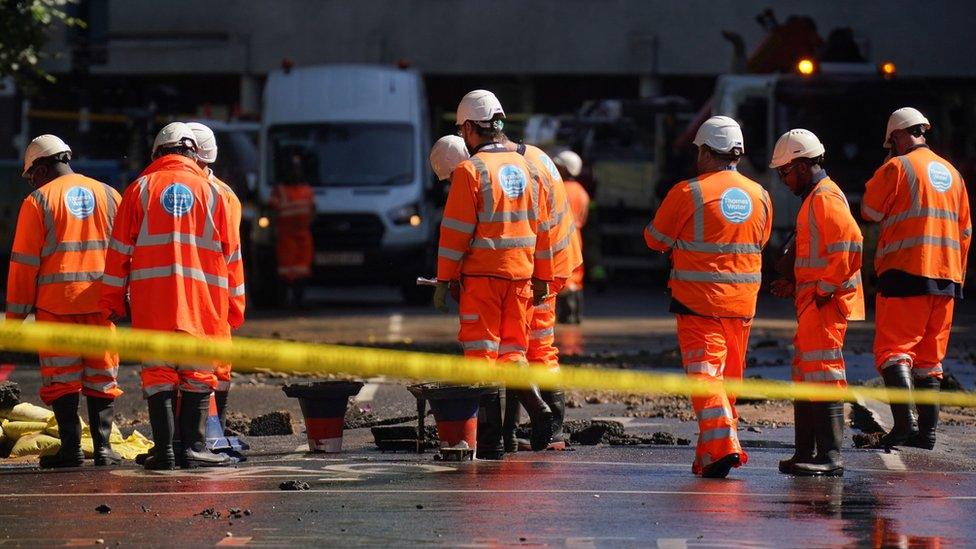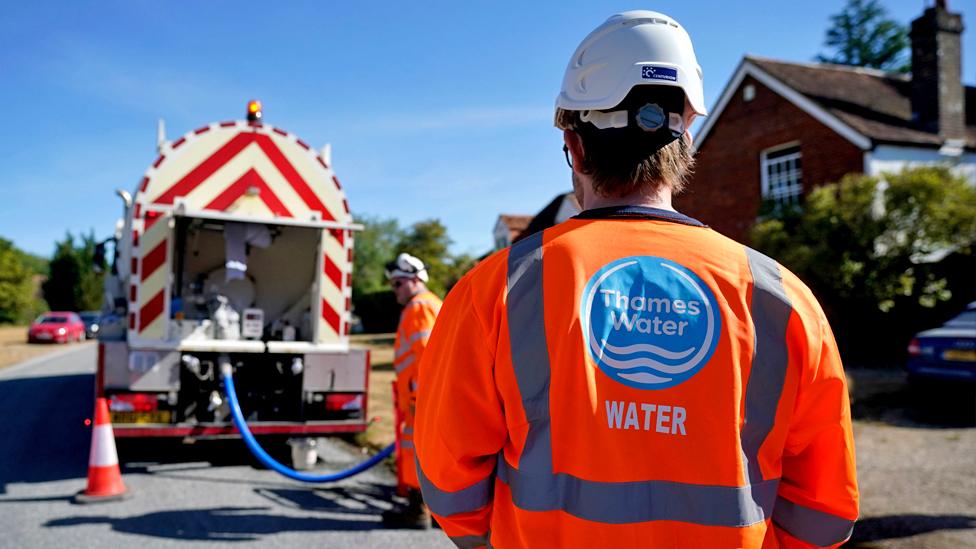Thames Water boss says bills need to rise by 40%
- Published
- comments

The boss of Thames Water has told the BBC customer bills need to rise by 40% by 2030 to pay for improvements.
"That is the price customers have to pay for the investment in our infrastructure that's needed," he said.
The firm is in a race to find extra cash after its investors said they would not give the struggling water giant more money unless bills rise.
The regulator, whose approval is needed for any price rises, has so far pushed back on substantial bill increases.
Sources close to Ofwat say it plans to "stick to its guns" and won't raise bills to address shareholder problems.
Fears emerged last year that the UK's largest water company Thames could collapse due to its huge debts.
Regardless of what happens, water supplies will continue as normal.
Chris Weston said he wanted to "reassure our customers that it is very much business as usual for Thames Water".
The firm was "quite a long way off" from nationalisation and "a lot that has to happen" beforehand.
However, he said it was "eventually possible".
"Even if that were to happen, the services will continue to be provided," he said. "There will still be clean drinking water, and we will still deal with all the waste that has to be dealt with."
Thames Water drew up a turnaround plan last summer which asked for bills to rise over the next five years.
Investors were due to pump in almost £4bn into the business over the next two years, but have withheld the first payment - due at the end of March - saying its turnaround plan is "uninvestible".
The government has previously said it is ready to take over Thames Water in the event that it collapses. It serves 15 million households, mostly across London and parts of southern England.
The regulator insists that even without the additional capital, the Thames Water operating company will not need to be nationalised immediately as it is still generating enough money to keep it going day-to-day for up to 18 months.
However, at some point Thames will need to raise new money to finance the huge programme of investment that is needed and if the current shareholders - which include domestic and foreign pension funds as well as wealth funds from China and Abu Dhabi - won't inject cash, then Thames will need to find new ones.
Sources close to the current owners say that unless Thames can pay a return - few people will find it an attractive investment.
It is not unusual for investors to try to put pressure on the regulator, which is in the process of deciding how much water companies will be able to charge customers from 2025 to 2030.
However, the BBC understands that some investors, who stand to lose significant amounts if the firm is nationalised, don't think regulators will let the firm raise prices enough to make Thames Water a prospect for further investment.
'Balancing act'
Mr Weston said that Thames Water was planning to come up with a plan that is acceptable to investors - who want higher returns - and Ofwat - which said it had to be "fair to bill payers".
"It is a balancing act," Mr Weston said.
Ofwat wants the company to clean up its act when it comes to the environment, and improve customer service.
Levelling Up Secretary Michael Gove said "the answer is not to hit consumers" and that "leadership of Thames Water has been a disgrace". He said successive management teams at Thames Water had "taken advantage" of customers by "taking out profits and not investing".
But Labour said it was the government which had "weakened regulation allowing water companies to get massively in debt while the sewerage system crumbled and illegal sewage dumping hit record levels".
The GMB union said investors were trying to "blackmail" customers and Ofwat so bills can "rocket".

Thames Water is heavily indebted, with a large proportion of its £14.7bn debt pile having been run up when it was owned by Macquarie, an Australian infrastructure bank.
Interest payments on its debt have also sharply increased.
Macquarie has said that it invested billions of pounds in upgrading Thames's water and sewerage infrastructure while it owned the company.
But critics argue that it took billions of pounds out of the company in loans and dividends - which is a share of a business's profits that is paid to shareholders.
Along with many UK water firms, Thames Water has been in the spotlight for pumping sewage into rivers.
Between 2020 and the end of last year, it discharged at least 72 billion litres of sewage into the Thames.
Ofwat said safeguards were in place to ensure that services to customers were protected "regardless of issues faced by shareholders of Thames Water".
"The company must now pursue all options to seek further equity for the business to turn around the performance of the company for customers. "We also need to see companies deliver the performance that customers expect and that they are run in a way that meets customers' expectations," it added.
Related topics
- Published28 February 2024

- Published12 December 2023

- Published12 July 2023

